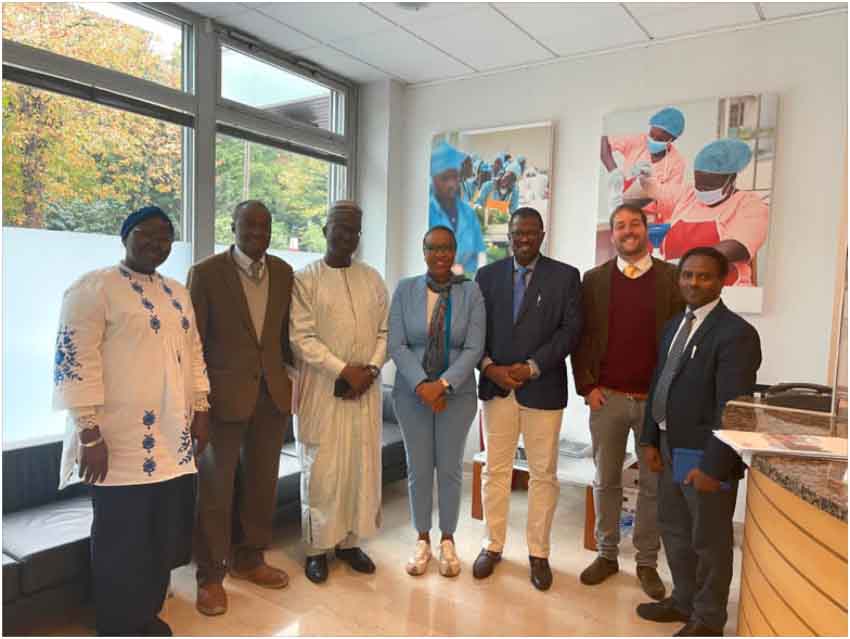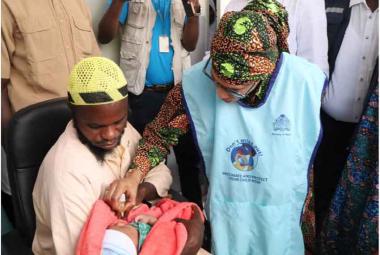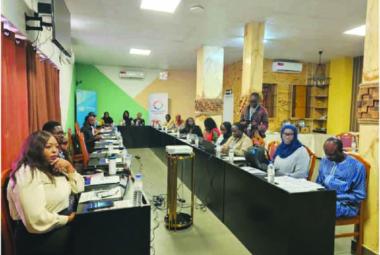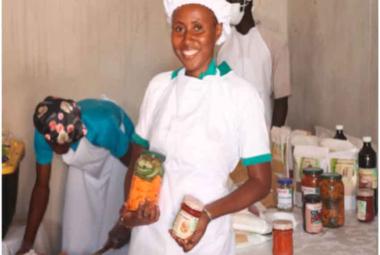By Mariatou Ngum
During his visit to Geneva in Switzerland last week, Minister of Trade, Industry, Regional Integration and Employment (MoTIE), Hon. Baboucarr Ousmaila Joof and delegation held a meeting with the United Nations Trade and Development (UNCTAD) Deputy Secretary General (DSG) Mr. Pedro Moreno; World Trade Organisation (WTO) Director General, Ms. Dr. Ngozi Okonjo-Iweala; and the Executive Director of the International Trade Centre (ITC), Ms. Pamela Coke-Hamilton.
During his meeting with UNCTAD, Minister Joof underlined the interventions MoTIE is currently implementing in partnership with UNCTAD; such as the EU-funded investment environment assessment for 6 ACP countries including The Gambia, the single window business registration – a proto-type developed at a training in UNCTAD attended by MOTIE staff. He assured Mr. Moreno of his Ministry’s commitment to collaborating with stakeholders and sectors at national level to accomplish these projects.
Mr. Moreno assured Minister Joof that the relevant division will continue to work with The Gambia on the recommendations on reforms of the business environment and FDI flows, including enterprise development.
During his bilateral meeting with Ms. Dr. Ngozi Okonjo-Iweala, the Director General of WTO, Minister Joof expressed appreciation to the DG for her steadfastness in running the affairs of WTO and her support to the needs of Least Developed Countries (LDCs) including The Gambia; thus extending his Ministry’s gratitude to the WTO for the capacity building opportunities attended by his staff.
The Trade minister informed the DG about the transformative reforms that the Government of The Gambia is embarking on in the sector of trade and investment environment and the several related infrastructural developments towards facilitation of trade in The Gambia. He cited the newly developed Free Economic Zone model by his Ministry and the potentials of the Senegambia Bridge corridor in easing the smooth movement of goods and services.
He called on the WTO DG to enhance the capacity of his Ministry through technical assistance, in the areas of integrated trade-related data base system, notifications in particular on import licensing and quantitative restrictions and guidance on informal sector reforms, trade-related ICT capacity building and trade and investment facilitation reforms.
DG Ngozi reminded the minister about the availability of the EIF interim facility fund which is meant to help LDCs continue accessing aid for trade funds before the EIF phase 3 starts. DG expressed hope that the EIF Taskforce will soon complete the work on the establishment of the future EIF programme and to remain at the WTO as demanded by the LDCs.
At the ITC bilateral meeting, Joof thanked the ITC boss for the warm reception and recalled on the positive impact of ITC interventions in The Gambia, citing the SheTrades, EIF-related activities and achievements of the EU-funded Youth Empowerment Project (YEP) to curb illegal migration. He expressed his desire for a YEP follow-up intervention as The Gambia is still facing the phenomenon of irregular migration by the youths.
He informed them of the recent signing of the Bilateral Labour Agreements (BLAs) initiative by government through his Ministry in the promotion of legal pathways. He further informed that the BLAs so far signed include with Spain, Saudi Arabia and United Arab Emirates.
Minister Joof also spoke on the opportunities to be created by the newly developed Free Economic Zone model by his Ministry with the aim of creating jobs during its implementation.
Mr. Coke-Hamilton thanked Minister Joof while assuring that the ITC will continue to commit to its partnership with The Gambia. She underscored the achievements from the ITC’s past interventions and the current interventions in the tourism and hospitality sector, through the Tourism ecosystem projects, which she described as an opportunity to promote internal tourism, facilitate access to internal market, promote agro-processing, value addition and jobs creation.
ED Coker-Hamilton and team offered to facilitate the linking of the University of The Gambia for technological skills to the Swiss TVET universities for the purpose of technical support and sharing of best practices.
He welcomed the development of the Free Economic Zone model and recommended that in order to achieve the desired objectives of the model, the support mechanisms around it needs to be in place – addressing facilitation in the area of trade, cross-border logistics, electronic certificates and less-costly transactions.







